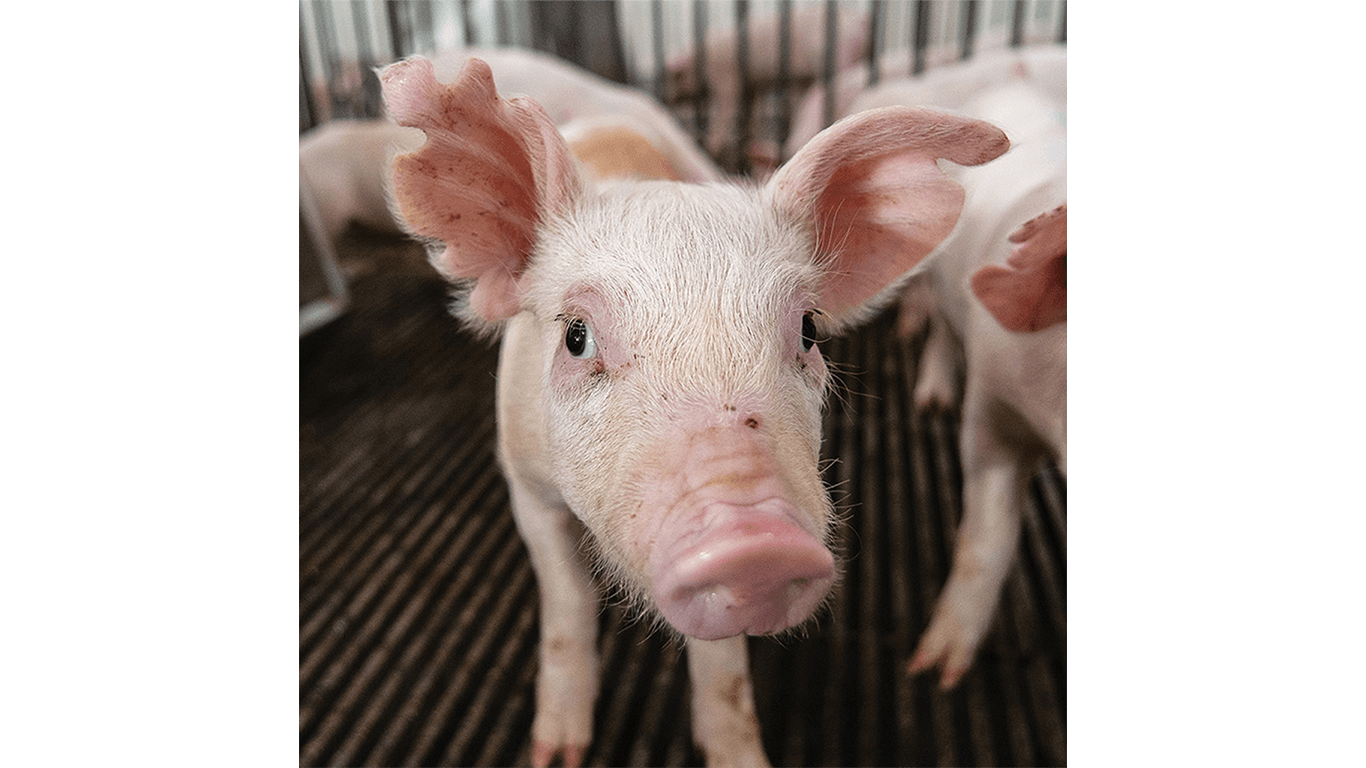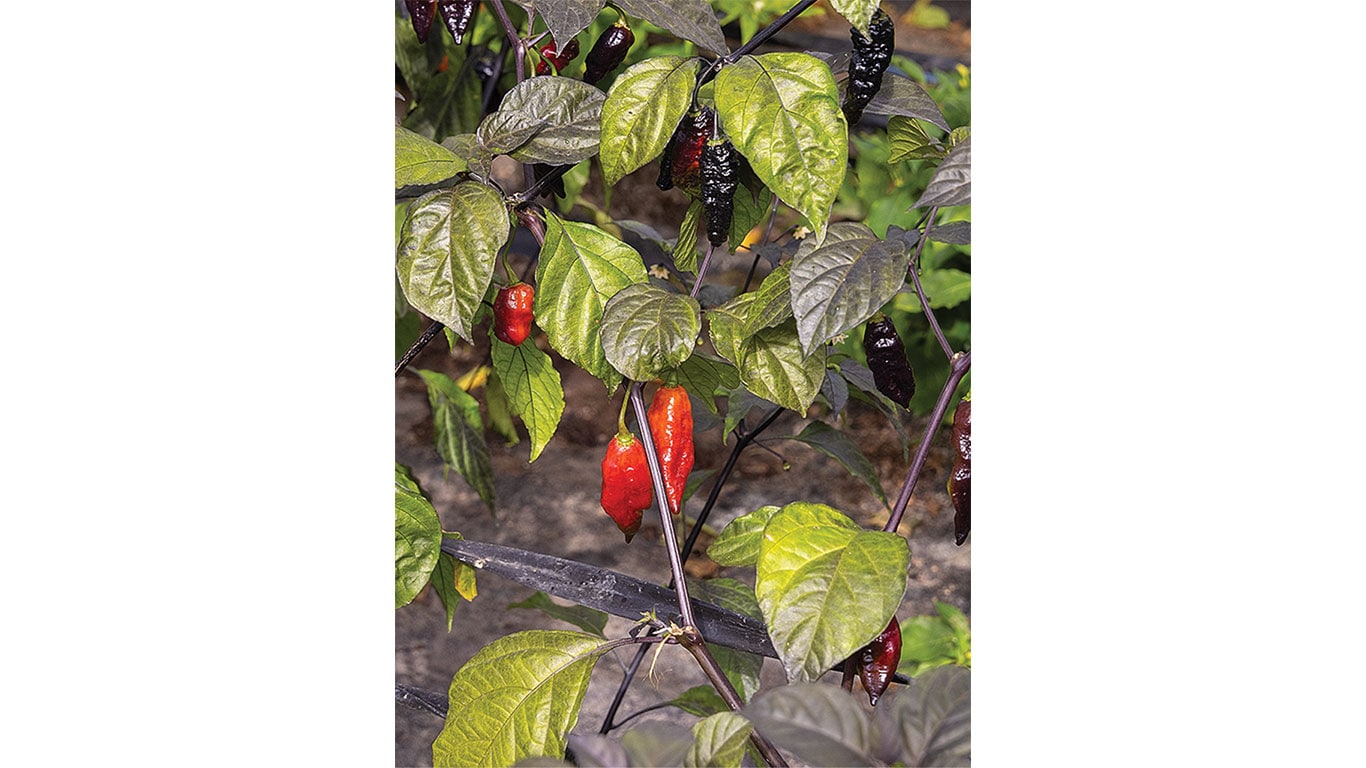Agriculture, Specialty/Niche September 01, 2025
Hot Commodity
Quebec farm strives to be a one stop pepper source for chili heads.
by Lorne McClinton
Light my mouth on fire. Hot sauces have never been more popular. Chilly Chilis, an Ottawa, Ontario, specialty store carries 965 different varieties on its website (chillychiles.com). Their popularity has been great news for Eric Higgins, manager of Ferme Spika in L'Assomption, Quebec.
His entire operation is based on supplying the many different pepper varieties that are needed to produce them.
Ferme Spika is owned by Serge Fortin, a large cash crop farmer in Quebec's Lanaudière region. Higgins was brought on board in 2020 to establish and manage an organic vegetable operation on parcels of land close to the city that are either too small or unsuitable for cash crop production. In 2023, Higgins changed its focus to hot peppers and complementary vegetables like garlic, ginger, and curcuma production to supply the hot sauce market.
"There are lots of farms growing vegetables here," Higgins says. "We're in a great zone for hot peppers and I saw potential. We also had a chili head [hot pepper fan] working here then who supplied me with basic information."
It took Higgins about two years to become well known among Quebec's and Ontario's hot sauce sector as a source for both fresh and frozen peppers. He grew 40 different pepper varieties using field scale and high tunnel production methods in 2024.
Perhaps someday they'll service very large hot sauce manufacturers who require entire fields of specific varieties, Higgins says. But they would have to get their cost of production down first. For now, they service 70 different medium and smaller-sized manufacturers across Ontario and Quebec using a very service-oriented approach.
"We add value by giving customers great, personalized service," Higgins says. "We devote a lot of time talking with our customers to understand their business. I'm not a chili head. I've never made a hot sauce in my life. But I appreciate what they're doing and I'm starting to know what people are looking for."
Above. It took Eric Higgins, at Ferme Spika, about two years to become well known to Ontario and Quebec hot sauce manufacturers. They have built their success by giving personalized service to mid-size and small producers.
For example, some clients only want the freshest peppers to make their sauces. If they need a single row of a specific pepper for their signature hot sauces, Ferme Spika will custom grow it for them. But if a client starting out doesn't have the staff to process them all while they're fresh, Higgins' staff will freeze the excess and store them in their industrial freezers until they can.
Very small custom-grown orders of uncommon varieties are a challenge, Higgins adds. If someone only wants 40 kilograms, for example, that means he'll only be putting in 50 plants in a small section of his high tunnels. So, he'll tell the customer to have a plan B in mind in case things go sideways.
"The market for very hot peppers with high Scoville ratings is definitely growing," Higgins says. "Four years ago, I would never have imagined I'd be selling so many kilos of Ghost Pepper (one million Scovilles) or the Carolina Reaper (2.2 million Scovilles)."
Why? Higgins says people just want their food to taste good, for the sake of their mental health if nothing else. For some this means the jumping-out-of-an-airplane adrenaline thrill they get from eating foods seasoned with high Scoville peppers.
"We also want to serve the growing ethnic community; they're not well served by the local industry," Higgins says. "These customers are looking for peppers that have a particular taste for their recipes from home. So, part of this is learning what they're looking for and helping them find it."
It's not easy because they often know them by different names. For example, a Sub-Saharan African customer asked for an African pepper. It took Higgins six months to realize he meant a Red Habanero in the 300,000 to 350,000 Scoville range.
"We might not be able to supply them with the exact variety they're looking for," Higgins says. "But we can now usually find one that's taste comes close enough to work in their recipe." ‡
Read More

AGRICULTURE, SUSTAINABILITY
Combined Energy
Processors team up to improve efficiency and look to the future.

AGRICULTURE, EDUCATION
Pigs Bulk up on Wheat
Research shows wheat makes great swine feed.



